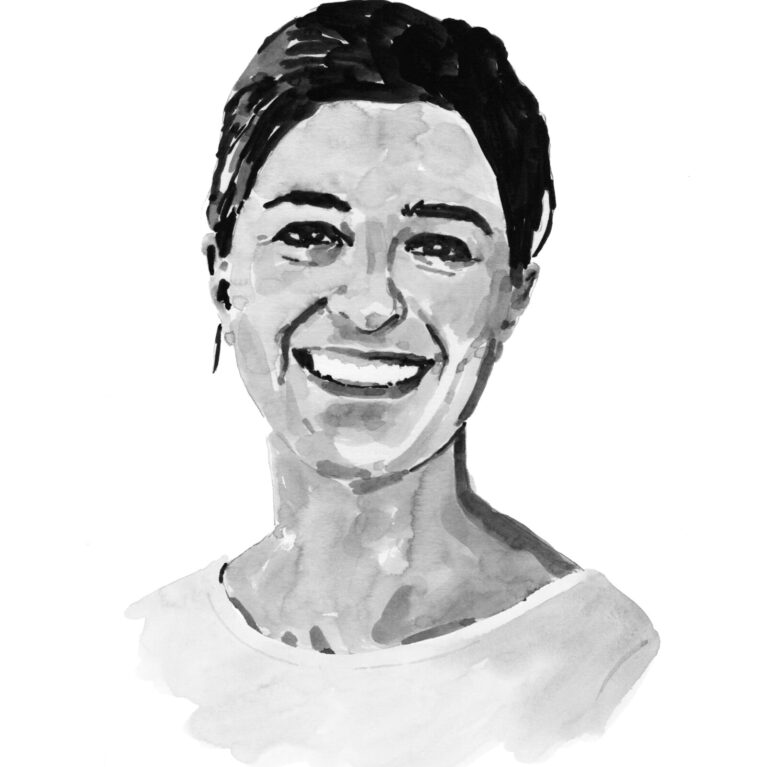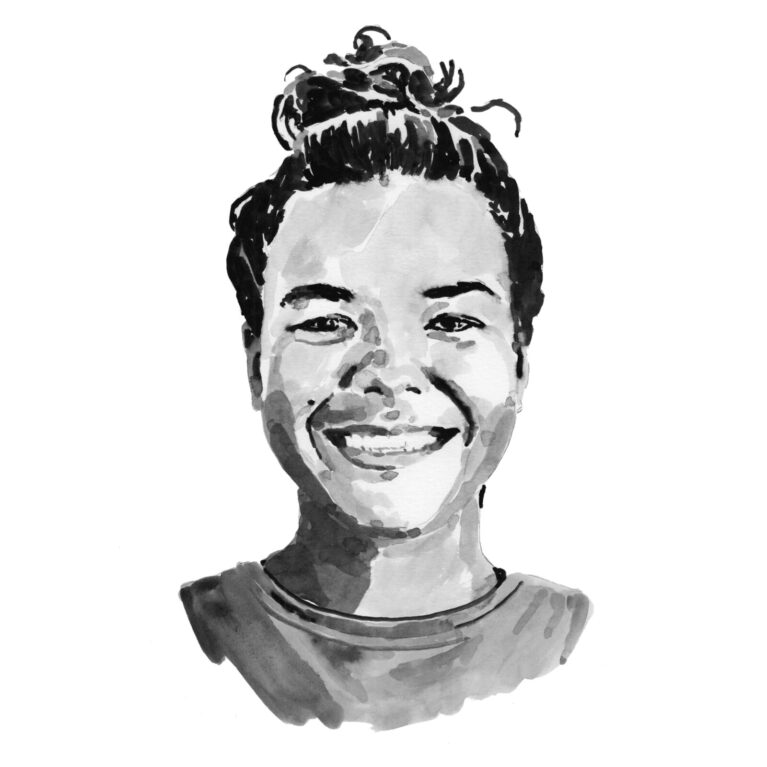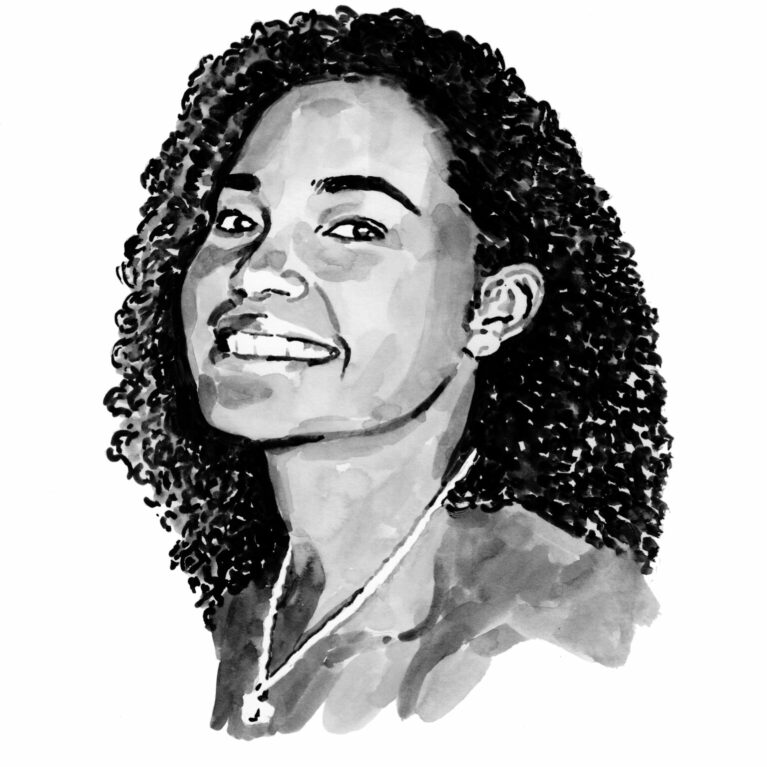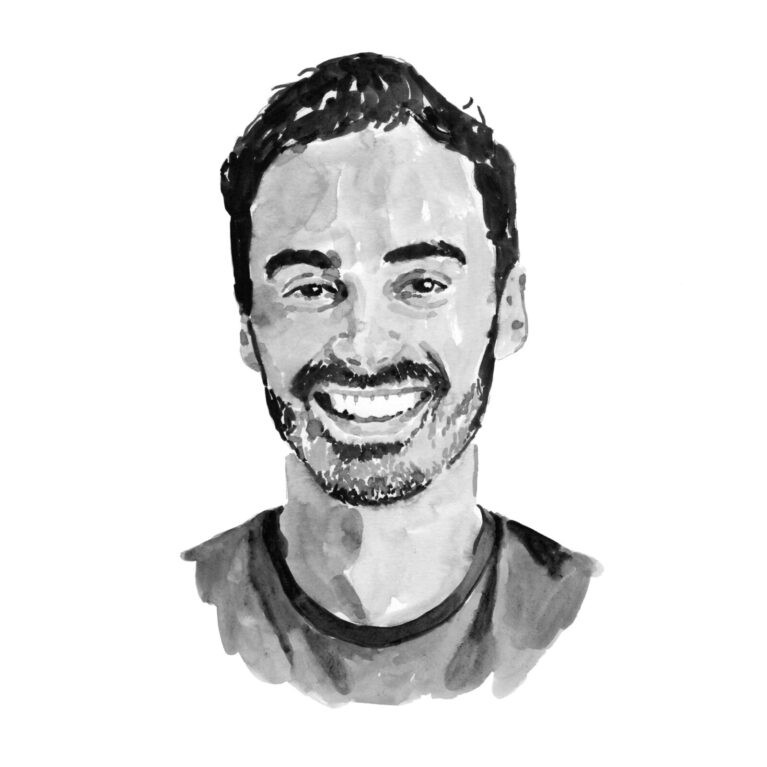Our Team
Henriette Grimmel
Growing up in Germany and Switzerland, where competitive swimming and rowing meant that she spent a lot of time in and on water, Henriette has always had a strong connection to this element. Hiking and camping holidays with her family led to an enduring interest in animals and nature. She first dipped into marine biology while studying in the USA during a high-school exchange year, learning about marine species and snorkelling for the first time in Hawaii.
At university Henriette studied geography and environmental sciences and it took a few more years before she discovered an interest in diving in Lake Zurich and a fascination for sharks. She followed these up with saltwater experiences while volunteering in Mozambique, where she assisted in whale shark research and fish censuses. After further travels and a dive-master internship in Honduras, she went on to complete an Erasmus Mundus Master’s in marine biodiversity and conservation, conducting her field study at the Bimini Biological Field Station in The Bahamas. She gained further experience in marine research while working with the Large Marine Vertebrates Research Institute (LAMAVE) in the Philippines, where she helped to monitor a mobulid fishery and assisted in shark research in Tubbataha Reefs Natural Park.
Although it was diving and sharks that got Henriette into marine science, she has always been interested in the complexities of ocean management and how humans interact with the marine world, so she completed a second Erasmus Mundus Master’s, this time in maritime spatial planning from the universities of Seville, the Azores and Iuav Venice. Sharks and conservation remain close to her heart, but Henriette also has a very strong interest in understanding ocean processes, ecosystem services and how humans use them, and finding a pathway to governing that use in a sustainable manner.
Ellie Moulinie
Born and raised in Seychelles, Ellie loves the island life. She comes from a family of fishermen living next to the ocean, so school holidays meant enjoying the sun and sea every day and, as a strong swimmer, especially snorkelling and diving. Her love of animals, nature and the ocean and her desire to visit all 115 islands in Seychelles influenced her to pursue a Bachelor’s degree in environmental science at the University of Seychelles. Only after learning how to dive did she realise that she wanted to specialise in marine science and fisheries. As an intern for Global Vision International she learnt about fish and marine invertebrates and their importance, and how to conduct surveys to monitor them. She ventured further into marine research by volunteering with the NGO Green Island Foundation, helping to conduct surveys on islands such as North, Denis and Fregate. In 2018 Ellie joined an Earthwatch team on Curieuse Island, where she participated in its Coral Communities in Seychelles Project.
Always moving her career in conservation forward, Ellie most recently worked with the Seychelles Islands Foundation as a field research officer on Aldabra Atoll, where her tasks consisted of conducting terrestrial surveys on the flora and fauna as well as marine research as part of Aldabra’s annual marine monitoring programme. As a young emerging scientist and conservationist, she believes it is her duty and responsibility to do her part to protect global ecosystems and threatened species against anthropogenic stressors and the effects of climate change that are causing the loss of biodiversity.
Dillys Pouponeau
Originally from Praslin Island, home of the largest nut in the world (coco de mer), Dillys had some amazing experiences as a member of environmental clubs during her school years and these taught her the importance of protecting biodiversity. They inspired her to pursue a Bachelor’s degree in environmental science, specialising in tropical biodiversity conservation, at the University of Seychelles.
As a young environmental conservationist with an interest in all living things and habitat types, Dillys has had the privilege of working on numerous terrestrial and marine projects, ranging from scientific research to environmental education and sustainability projects on several islands in Seychelles. She also has a strong interest in well-preserved biodiverse ecosystems, which she enjoys capturing on video and in photographs that enable her to raise awareness and engage people’s interest. She is keen to fill her professional and private life with anything that is fun, artistic, creative, exploratory and adventurous, as long as it is in the wild. Dillys wishes to pursue her studies further and develop the necessary skills required to become a great scientist and nature photographer and videographer.
Her career began at the Vallée de Mai Nature Reserve, where she worked as a field research assistant before undertaking her academic degree. After finishing at university, she was employed as the sustainability manager at a five-star hotel and most recently she worked as the assistant conservation officer with the Island Conservation Society. She worked on Silhouette Island (93% national park and surrounding marine park) and at Aride Island Special Reserve and Marine Protected Area, where she coordinated conservation projects and managed a team of eight.
Dr Robert Bullock
Rob can trace his love for science and the marine world back to his youth and to Sir David Attenborough, whose words instilled a curiosity that soon grew into a passion for learning about nature. As an adult, Rob pursued this passion, studying marine and freshwater biology at the University of Hull. As he learned more about the marine realm and its inhabitants, he became particularly interested in the importance of species in healthy ecosystems and the need for science-based conservation. Through his education he discovered the amazing diversity among sharks, the fascinating roles they play in marine systems and the extreme threats they face.
Rob conducted his PhD research at the Bimini Biological Field Station, where he worked as a Principal Investigator and studied the fine-scale behaviour of young lemon sharks using the Bimini Island nursery sites. He then moved on to broaden his skill set as a post-doctoral research associate with the Marine Biodiversity Unit of the International Union for Conservation of Nature (IUCN), assessing extinction risk to marine species. Rob’s career thus far has taken him to the intersection of scientific research and conservation action and he is driven to deliver science with tangible conservation outcomes.
For the past five years Rob worked for the SOSF-DRC as its Research Director defining the current long-term programs and supervising multiple student projects. He has now moved back to the UK as Head of Conservation of the Deep Aquarium and as lecturer in Wildlife Conservation at the University of Hull. However, he remains involved with the SOSF-DRC and its projects in the role of Research Advisor, focusing on continuing student and staff support in ongoing projects.




